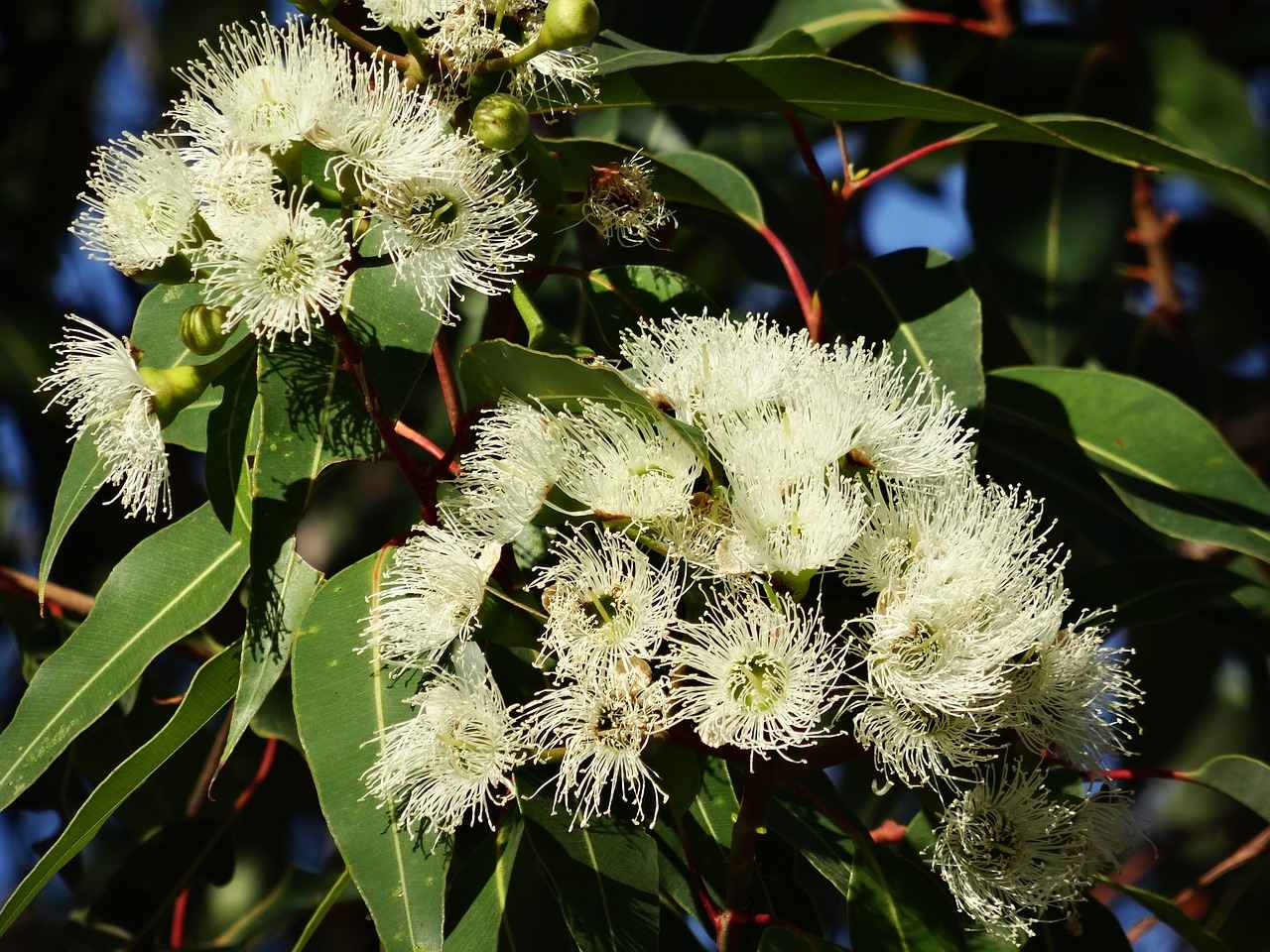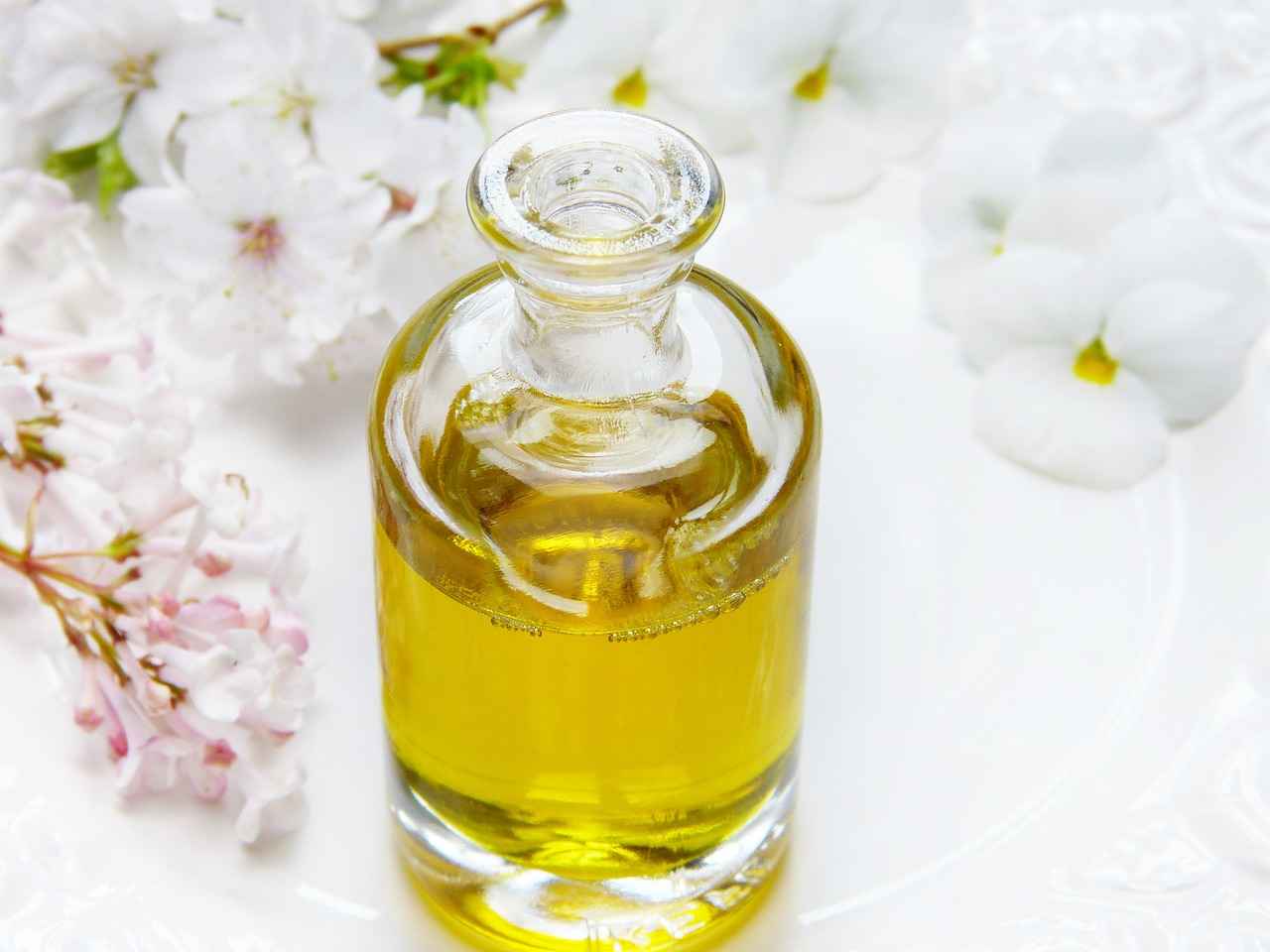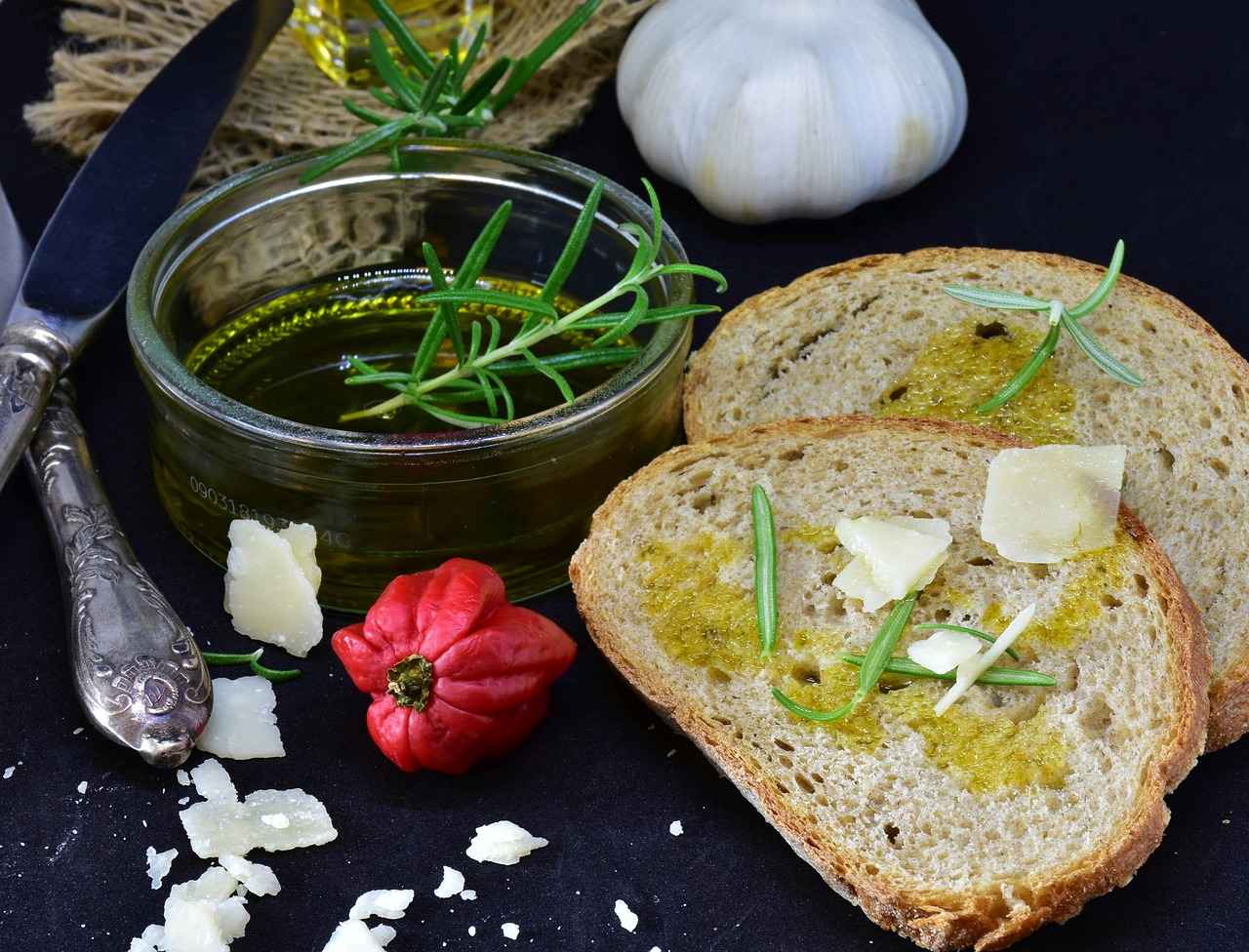In this article, we delve into the remarkable benefits of eucalyptus oil in preventing cobwebs and providing effective natural pest control solutions to maintain a spider-free home. With its natural insect-repelling properties, eucalyptus oil serves as a powerful ally in your quest for a cleaner living space.
Eucalyptus oil is an essential oil extracted from the leaves of eucalyptus trees. Its potent aroma is not only refreshing but also acts as a natural deterrent for spiders and various pests. The oil contains compounds that interfere with the sensory receptors of insects, making it difficult for them to navigate and thrive in treated areas.
Opting for eucalyptus oil over chemical pest control methods is a wise choice for several reasons:
- Eco-friendly: Eucalyptus oil is derived from natural sources, making it a sustainable option.
- Non-toxic: It is safe for both humans and pets, reducing the risk of harmful side effects associated with chemical pesticides.
- Effective: Many users report significant reductions in spider populations after using eucalyptus oil.
Beyond its pest control capabilities, eucalyptus oil boasts numerous health benefits:
- Natural antiseptic: It can help clean wounds and reduce inflammation.
- Respiratory health: The oil can alleviate symptoms of colds and allergies when diffused in the air.
Utilizing eucalyptus oil for pest control is straightforward. Here are some methods to consider:
Creating your own eucalyptus oil spray is simple. Here’s what you need:
- Ingredients: Eucalyptus oil, water, and a spray bottle.
1. Mix 10-15 drops of eucalyptus oil with 2 cups of water in a spray bottle.2. Shake well to combine.3. Spray the mixture around entry points, windows, and dark corners of your home.4. Reapply every few weeks for optimal results.
To maximize the effectiveness of eucalyptus oil, focus on key areas in your home:
- Entry Points: Doors and windows are primary access points for spiders.
- Dark and Humid Areas: Basements and attics are preferred habitats for spiders; treat these areas thoroughly.
In addition to using eucalyptus oil, consider these strategies:
- Regular Cleaning: Maintain a consistent cleaning routine to eliminate existing webs and deter new spiders.
- Encourage Natural Predators: Attract birds and other natural predators to help keep spider populations in check.
By incorporating eucalyptus oil into your pest control routine, you can create a safer, more pleasant living environment while effectively keeping spiders and cobwebs at bay. Embrace these natural solutions for a healthier home!

What is Eucalyptus Oil and How Does it Work?
Eucalyptus oil is a remarkable essential oil extracted from the leaves of eucalyptus trees, primarily found in Australia. This oil is renowned for its myriad of uses, especially in the realm of natural pest control. Its unique composition includes compounds such as eucalyptol, which is responsible for its potent insect-repelling properties. When it comes to keeping your home free from unwanted visitors, particularly spiders and other pests, eucalyptus oil stands out as a natural solution.
The effectiveness of eucalyptus oil in repelling pests lies in its strong aroma and chemical composition. The scent of eucalyptus oil is not only refreshing to humans but is also highly offensive to many insects, including spiders. When applied in various forms, it creates an environment that is less inviting for these pests, thereby reducing their presence in your home.
One of the primary reasons homeowners opt for eucalyptus oil over traditional chemical solutions is its eco-friendliness. Unlike synthetic pesticides, eucalyptus oil is non-toxic to humans and pets when used correctly. This makes it an ideal choice for families looking to maintain a safe living environment while effectively managing pest issues.
Beyond its pest-repelling qualities, eucalyptus oil offers numerous health benefits. Its antiseptic properties make it useful for treating minor wounds and reducing inflammation. Additionally, when diffused in the air, eucalyptus oil can help relieve respiratory issues, making it a versatile addition to your home.
Using eucalyptus oil for pest control is straightforward and can be done in several ways. Here are some effective methods to incorporate this oil into your pest management routine:
- DIY Eucalyptus Oil Spray: Create a simple spray by mixing eucalyptus oil with water in a spray bottle. This homemade solution can be applied to areas where spiders are likely to enter.
- Essential Oil Diffusion: Diffusing eucalyptus oil not only freshens the air but also deters spiders and other pests.
- Soaking Cotton Balls: Soak cotton balls in eucalyptus oil and place them in corners and entry points to repel spiders.
To maximize the effectiveness of eucalyptus oil, it’s crucial to know where to apply it. Here are key areas to target:
- Entry Points: Focus on doors, windows, and any cracks where spiders might enter your home.
- Dark Areas: Spiders thrive in dark and damp spaces. Apply eucalyptus oil in basements, attics, and storage areas.
In addition to using eucalyptus oil, there are several other strategies you can implement to keep your home spider-free:
- Regular Cleaning: Establish a routine cleaning schedule to remove spider webs and deter spiders from settling in.
- Natural Predators: Encourage the presence of natural predators, such as birds, in your garden to help control spider populations.
In summary, eucalyptus oil is not only effective in repelling spiders and other pests but also offers a range of health benefits. By incorporating this natural solution into your pest control regimen, you can create a safer and more pleasant living environment.

Why Choose Eucalyptus Oil Over Chemical Solutions?
When it comes to pest control, many homeowners are increasingly seeking alternatives to traditional chemical solutions. One such option that has gained significant attention is eucalyptus oil. This natural remedy not only offers a safe and eco-friendly method for managing pests but also provides a range of additional benefits that make it an appealing choice for families. Below, we delve deeper into why eucalyptus oil is preferred over chemical solutions.
Eucalyptus oil is derived from the leaves of eucalyptus trees and is known for its non-toxic properties. Unlike many chemical pesticides, which can pose health risks to humans and pets, eucalyptus oil is safe for use around children and animals. This makes it an ideal option for families who are looking to maintain a pest-free home without compromising safety. Furthermore, eucalyptus oil does not leave behind harmful residues, ensuring a cleaner and safer living environment.
In addition to being safe for human health, eucalyptus oil is also environmentally friendly. Chemical pesticides can have detrimental effects on local ecosystems, harming beneficial insects and pollinators. Eucalyptus oil, on the other hand, acts as a natural insect repellent without causing harm to the environment. By choosing eucalyptus oil, homeowners can contribute to a more sustainable approach to pest control.
Many families are concerned about the cost of pest control solutions. Eucalyptus oil is not only effective but also cost-efficient. A small bottle of eucalyptus oil can go a long way in creating homemade pest deterrents. By mixing eucalyptus oil with water, you can create a potent spray that can be used throughout your home. This DIY approach not only saves money but also allows you to control the concentration of the solution based on your specific needs.
Beyond its pest-repelling properties, eucalyptus oil offers several health benefits. Its antiseptic qualities make it useful for cleaning minor wounds and reducing inflammation. Additionally, eucalyptus oil is known for its ability to relieve respiratory issues. Diffusing eucalyptus oil can help clear nasal passages and improve air quality, providing dual benefits for your home.
The natural compounds found in eucalyptus oil are effective at repelling spiders and other insects. The strong scent of eucalyptus is unappealing to many pests, making it a natural deterrent. By strategically applying eucalyptus oil in areas where pests are likely to enter, such as doorways and windows, homeowners can create a less inviting environment for spiders and other unwanted guests.
In summary, eucalyptus oil stands out as a safe, eco-friendly, and cost-effective alternative to chemical pest control solutions. Its non-toxic nature makes it suitable for families, while its additional health benefits and environmental friendliness further enhance its appeal. By choosing eucalyptus oil, homeowners can effectively manage pests while ensuring a safe and healthy living environment.
Health Benefits of Eucalyptus Oil
Eucalyptus oil is not just a powerful natural pest deterrent; it also boasts a wide array of health benefits that make it a valuable addition to any household. This essential oil, derived from the leaves of eucalyptus trees, is known for its versatile properties that enhance both well-being and home hygiene.
Incorporating eucalyptus oil into your daily routine can offer numerous advantages. Here are some of the most notable health benefits:
- Natural Antiseptic Properties: Eucalyptus oil has been recognized for its antiseptic qualities, making it an excellent choice for cleaning minor wounds and cuts. Its ability to fight bacteria and reduce inflammation helps in speeding up the healing process.
- Respiratory Relief: One of the most celebrated benefits of eucalyptus oil is its effectiveness in relieving respiratory issues. When diffused, it can help alleviate symptoms of colds, allergies, and sinus congestion, making it easier to breathe.
- Anti-Inflammatory Effects: Eucalyptus oil contains compounds that can reduce inflammation, providing relief for conditions such as arthritis and muscle pain when applied topically.
- Stress Relief: The invigorating aroma of eucalyptus oil can promote relaxation and reduce stress levels. Inhaling its scent can help clear the mind and improve focus.
- Natural Insect Repellent: Beyond pest control in the home, eucalyptus oil can also be used to repel insects when applied to the skin, making it a natural alternative to chemical repellents.
Utilizing eucalyptus oil for its health benefits is simple and can be done in various ways:
- Diffusion: Add a few drops of eucalyptus oil to a diffuser to purify the air and promote respiratory health.
- Topical Application: Dilute eucalyptus oil with a carrier oil (like coconut or jojoba oil) and apply it to sore muscles or minor cuts for its anti-inflammatory and antiseptic properties.
- Steam Inhalation: For respiratory relief, add a few drops of eucalyptus oil to hot water, cover your head with a towel, and inhale the steam to open up nasal passages.
- Bath Soak: Adding eucalyptus oil to your bath can help relax sore muscles and provide a soothing aromatic experience.
While eucalyptus oil is generally safe for most people, it’s important to take certain precautions:
- Allergic Reactions: Always perform a patch test before using eucalyptus oil topically to ensure you do not have an allergic reaction.
- Consultation for Pregnant Women: Pregnant or breastfeeding women should consult a healthcare provider before using eucalyptus oil.
- Proper Dilution: Always dilute eucalyptus oil with a carrier oil when applying it to the skin to avoid irritation.
In summary, eucalyptus oil serves multiple purposes beyond pest control, offering significant health benefits that can enhance your overall well-being. From its antiseptic properties to its ability to relieve respiratory issues, incorporating this versatile oil into your home can lead to a healthier lifestyle.
Natural Antiseptic Properties
Eucalyptus oil is renowned not only for its pest-repelling capabilities but also for its impressive health benefits. Among these benefits, its stand out, making it an essential addition to any household.
Eucalyptus oil has been traditionally used in alternative medicine for its ability to cleanse and heal wounds. Its antiseptic qualities help to prevent infection by inhibiting the growth of bacteria and fungi. This makes it an excellent choice for treating minor cuts, scrapes, and burns.
In addition to its antiseptic properties, eucalyptus oil is also known for its anti-inflammatory effects. When applied topically, it can help reduce swelling and pain associated with various skin conditions, including insect bites and rashes. This dual action of cleansing and soothing makes eucalyptus oil a valuable remedy for minor injuries.
Using eucalyptus oil for wound care is straightforward. Here are some practical steps:
- Dilution: Always dilute eucalyptus oil with a carrier oil, such as coconut or olive oil, before applying it to the skin. A common ratio is 1 part eucalyptus oil to 3 parts carrier oil.
- Application: Clean the wound gently with soap and water. Once dry, apply the diluted eucalyptus oil using a clean cotton ball or swab.
- Covering: Depending on the size and severity of the wound, you may want to cover it with a sterile bandage to protect it from further irritation.
While eucalyptus oil is generally safe for most people, there are some precautions to keep in mind:
- Always perform a patch test on a small area of skin to check for allergic reactions.
- Avoid using eucalyptus oil on deep or serious wounds without consulting a healthcare professional.
- Keep eucalyptus oil out of reach of children and pets, as it can be toxic if ingested in large amounts.
Yes! Beyond wound care, eucalyptus oil offers a host of other health benefits:
- Respiratory Relief: Inhaling eucalyptus oil can help clear congestion and alleviate symptoms of colds and allergies.
- Muscle Pain Relief: Its anti-inflammatory properties make it effective for soothing sore muscles when diluted and massaged into the skin.
- Stress Reduction: The aroma of eucalyptus oil can promote relaxation and reduce stress levels when used in aromatherapy.
In summary, eucalyptus oil is a versatile and effective natural remedy for wound care and inflammation. Its antiseptic properties and ability to reduce inflammation make it a valuable addition to your home health toolkit. By incorporating eucalyptus oil into your first-aid routine, you can promote healing and enhance your overall well-being.
Respiratory Relief
is a significant benefit of eucalyptus oil, making it a valuable addition to your home, especially during cold and allergy seasons. This essential oil, extracted from the leaves of eucalyptus trees, is renowned not only for its pleasant aroma but also for its therapeutic properties. When diffused, eucalyptus oil can create a refreshing atmosphere while simultaneously alleviating various respiratory symptoms.
The inhalation of eucalyptus oil can help clear nasal passages and promote easier breathing. This is largely due to its active compound, eucalyptol, which possesses anti-inflammatory and decongestant properties. By reducing inflammation in the airways, eucalyptus oil can help individuals suffering from conditions such as asthma, bronchitis, and sinusitis.
- Improved Air Quality: Diffusing eucalyptus oil can purify the air, reducing the presence of airborne pathogens and allergens.
- Enhanced Breathing: The soothing aroma can help open up the respiratory tract, making it easier to breathe.
- Stress Relief: The calming scent of eucalyptus can also reduce stress and anxiety, promoting a sense of well-being.
To harness the full potential of eucalyptus oil, consider the following methods:
- Diffusion: Use an essential oil diffuser to disperse eucalyptus oil into the air. This method allows for a consistent release of the oil’s therapeutic properties.
- Steam Inhalation: Add a few drops of eucalyptus oil to a bowl of hot water. Lean over the bowl with a towel draped over your head to trap the steam, and inhale deeply for several minutes.
- Topical Application: Dilute eucalyptus oil with a carrier oil and apply it to your chest or back. This can provide localized relief and enhance the oil’s effectiveness.
Yes, eucalyptus oil can be beneficial for individuals suffering from allergies. Its natural anti-inflammatory properties can help reduce the severity of allergic reactions, such as sneezing and nasal congestion. By improving overall air quality, eucalyptus oil can also minimize the presence of allergens in your home.
While eucalyptus oil is generally safe for most people, it is important to take certain precautions:
- Consult a Doctor: If you have pre-existing health conditions or are pregnant, consult a healthcare professional before using eucalyptus oil.
- Patch Test: Always perform a patch test before applying the oil topically to ensure you do not have an allergic reaction.
- Keep Away from Pets: Some pets, especially cats and dogs, can be sensitive to essential oils. Ensure they are not exposed to concentrated amounts of eucalyptus oil.
In conclusion, eucalyptus oil not only serves as a natural pest deterrent but also offers significant . By incorporating this versatile oil into your home, you can enjoy a healthier environment that combats colds and allergies while promoting overall well-being.
How to Use Eucalyptus Oil for Pest Control
Utilizing eucalyptus oil for pest control is an effective and natural method to keep your home free from unwanted spiders and cobwebs. This essential oil is renowned for its insect-repelling properties, making it a popular choice among homeowners looking for eco-friendly pest solutions. In this section, we will delve into the various ways you can harness the power of eucalyptus oil to create a spider-free environment.
Eucalyptus oil contains compounds such as 1,8-cineole, which are known for their ability to repel insects, including spiders. The strong scent of eucalyptus not only masks the pheromones that attract spiders but also creates an inhospitable environment for them. By understanding how eucalyptus oil works, you can effectively integrate it into your pest control routine.
Making your own eucalyptus oil spray is simple and requires only a few ingredients. Here’s a straightforward recipe:
- Ingredients:
- 10-15 drops of eucalyptus oil
- 1 cup of water
- A spray bottle
To prepare the spray, follow these steps:
1. Combine the eucalyptus oil and water in the spray bottle.2. Shake well to mix the ingredients thoroughly.3. Spray the mixture in areas prone to spider activity.
Strategic application of eucalyptus oil is key to effective pest control. Here are some prime locations:
- Entry Points: Focus on doors, windows, and any cracks where spiders might enter.
- Dark Corners: Spiders tend to hide in dark and undisturbed areas, so apply the spray in corners, basements, and attics.
- Outdoor Areas: Spraying around outdoor furniture and gardens can deter spiders from coming close to your home.
To enhance the efficacy of eucalyptus oil in your pest control strategy, consider the following tips:
- Regular Reapplication: Reapply the spray every few days, especially after rain or heavy winds.
- Combine with Other Natural Repellents: Mixing eucalyptus oil with other essential oils, such as peppermint or tea tree oil, can increase its repellent properties.
- Maintain Cleanliness: Regular cleaning can help eliminate spider webs and reduce the likelihood of spiders taking residence in your home.
Yes, eucalyptus oil is not only effective against spiders but also works well to deter other pests such as ants, mosquitoes, and flies. Its strong scent can disrupt the natural behaviors of these insects, making it a versatile addition to your pest control toolkit.
While eucalyptus oil is a natural solution, it’s important to use it safely:
- Keep Out of Reach: Ensure that the spray is stored away from children and pets.
- Patch Test: Before applying eucalyptus oil directly to surfaces, conduct a patch test to avoid any potential damage.
Incorporating eucalyptus oil into your pest control methods not only helps in preventing cobwebs and deterring spiders but also promotes a healthier living environment. With its natural properties and ease of use, eucalyptus oil stands out as a preferred choice for eco-conscious homeowners.

DIY Eucalyptus Oil Spray Recipe
Creating a homemade eucalyptus oil spray is not only simple but also an effective way to keep pests at bay, particularly spiders. This natural solution harnesses the power of eucalyptus oil, known for its insect-repelling properties. Below, we outline the essential ingredients and provide a step-by-step guide to crafting your own pest-repelling spray.
To get started on your DIY eucalyptus oil spray, gather the following ingredients:
- Eucalyptus oil – 10-15 drops
- Water – 1 cup
- Witch hazel or vinegar – 1 tablespoon (optional, for added potency)
- Spray bottle – preferably glass or BPA-free plastic
Follow these straightforward steps to prepare your eucalyptus oil spray:
- Prepare the Spray Bottle: Start with a clean spray bottle to avoid contamination. If reusing an old bottle, ensure it is thoroughly washed and dried.
- Combine Ingredients: In the spray bottle, add 1 cup of water. If you choose to include witch hazel or vinegar, add 1 tablespoon to enhance the spray’s effectiveness.
- Add Eucalyptus Oil: Next, add 10-15 drops of eucalyptus oil. This is the key ingredient that gives your spray its pest-repelling properties.
- Mix Well: Secure the spray bottle lid tightly and shake the mixture gently to combine all ingredients thoroughly.
- Label Your Spray: For safety and convenience, label your spray bottle with the contents and date of preparation.
Once your DIY eucalyptus oil spray is ready, it’s time to put it to use. Here are some practical tips for effective application:
- Target Entry Points: Spray around doors, windows, and any cracks or crevices where spiders may enter.
- Focus on Dark Areas: Apply the spray in basements, attics, and corners where spiders are likely to hide.
- Reapply Regularly: To maintain effectiveness, reapply the spray every few weeks or after heavy cleaning.
Utilizing a homemade eucalyptus oil spray not only helps in keeping spiders away but also provides additional benefits:
- Natural and Non-Toxic: Unlike chemical sprays, eucalyptus oil is safe for use around children and pets.
- Pleasant Aroma: The refreshing scent of eucalyptus can also help freshen up your living space.
- Cost-Effective: Making your own spray can save you money compared to purchasing commercial pest control products.
By following these steps and tips, you can create an effective, natural pest deterrent that helps keep your home spider-free. Enjoy the peace of mind that comes with using a safe and eco-friendly solution!
Essential Ingredients
Creating a natural pest deterrent is an excellent way to maintain a spider-free home while avoiding harmful chemicals. One of the most effective methods involves using eucalyptus oil, a powerful essential oil known for its insect-repelling properties. Below, we will discuss the essential ingredients needed and provide a detailed recipe for making your own eucalyptus oil spray.
To make an effective spray, you will need the following ingredients:
- Eucalyptus Oil: This is the primary ingredient that provides the pest-repelling properties. Eucalyptus oil is derived from the leaves of eucalyptus trees and is known for its strong scent, which is unpleasant to spiders and other insects.
- Water: Water serves as a base for the spray, helping to dilute the eucalyptus oil for safe application. It also allows for even distribution when sprayed.
- Spray Bottle: A clean spray bottle is essential for mixing and applying your eucalyptus oil solution. Opt for a bottle that has a fine mist setting for better coverage.
Each ingredient plays a crucial role in the effectiveness of your pest deterrent. Eucalyptus oil, being a natural insect repellent, creates an environment that is less hospitable to spiders. Water allows for safe and easy application, ensuring that the oil can be spread across different surfaces without causing damage. The spray bottle makes it convenient to apply the solution to various areas in your home.
Follow these simple steps to prepare your eucalyptus oil spray:
- Gather Your Ingredients: Make sure you have eucalyptus oil, water, and a spray bottle ready.
- Mix the Ingredients: In your spray bottle, combine 10-15 drops of eucalyptus oil with 1 cup of water. This ratio can be adjusted based on the potency you desire.
- Shake Well: Secure the spray bottle lid and shake it vigorously to ensure that the oil is evenly distributed in the water.
- Label the Bottle: It’s a good idea to label your spray bottle to avoid confusion with other household products.
- Test the Spray: Before applying it to your entire home, test the spray on a small area to ensure it does not damage surfaces.
Once your spray is ready, it’s time to put it to use. Here are some effective application tips:
- Focus on Entry Points: Spray around doors, windows, and other entry points to deter spiders from entering your home.
- Target Dark Corners: Areas such as basements, attics, and closets are prime spider habitats. Apply the spray generously in these spots.
- Reapply Regularly: For maximum effectiveness, reapply your eucalyptus oil spray every few weeks, especially after cleaning or heavy rain.
By utilizing these essential ingredients and following the outlined steps, you can create a powerful and natural pest control solution. Eucalyptus oil not only helps in keeping spiders at bay but also contributes to a healthier living environment.
Step-by-Step Instructions
Creating your own eucalyptus oil spray is a simple yet effective way to combat cobwebs and deter spiders from invading your home. Follow these straightforward instructions to prepare your eucalyptus oil spray for optimal results in preventing cobwebs and keeping spiders at bay.
- Eucalyptus Oil: Known for its natural insect-repelling properties.
- Water: Acts as a base for your spray solution.
- Spray Bottle: A clean, empty spray bottle to store your mixture.
- Gather Your Ingredients: Collect all the necessary items listed above. Ensure your spray bottle is clean to avoid contamination.
- Measure the Ingredients: Use a measuring cup to combine 2 cups of water with 20-30 drops of eucalyptus oil. Adjust the amount of eucalyptus oil based on your preference for scent and potency.
- Mix Well: Pour the water and eucalyptus oil mixture into the spray bottle. Secure the lid tightly and shake gently to mix the ingredients thoroughly.
- Label Your Spray: To avoid confusion, label your spray bottle clearly as “Eucalyptus Oil Spray” for easy identification.
- Test the Spray: Before applying it to larger areas, test the spray on a small, inconspicuous area to ensure it does not damage surfaces.
- Application: Spray the mixture in areas prone to cobwebs and spiders, such as corners, windowsills, and entry points. Reapply every few weeks or after heavy cleaning.
For best results, combine your eucalyptus oil spray with regular cleaning habits. Dusting and vacuuming can help eliminate existing webs and deter spiders from returning. Additionally, consider applying the spray during the evening when spiders are most active.
By following these steps, you can create an effective eucalyptus oil spray that not only helps prevent cobwebs but also contributes to a healthier, more pleasant living environment.

Where to Apply Eucalyptus Oil for Maximum Effectiveness?
When it comes to utilizing eucalyptus oil for pest control, strategic application is key. Knowing precisely where to apply this potent essential oil can significantly enhance its effectiveness against spiders and other pests. Below are the critical areas in your home where eucalyptus oil should be applied for optimal results.
- Entry Points and Windows
Doors and windows are primary access points for spiders. By applying eucalyptus oil around these areas, you create a barrier that deters spiders from entering your home. Use a cotton ball soaked in eucalyptus oil to wipe down the frames and sills, ensuring that the scent lingers and acts as a natural repellent.
- Dark and Humid Areas
Spiders are attracted to dark, damp environments. Areas such as basements, attics, and corners of rooms are ideal spots for spider webs. Spraying eucalyptus oil in these locations can help create an unwelcoming atmosphere for spiders. Focus on corners, behind furniture, and in storage spaces where moisture tends to accumulate.
- Outdoor Areas
Applying eucalyptus oil around the perimeter of your home can also be effective. This includes patios, garages, and garden sheds. Mix eucalyptus oil with water in a spray bottle and apply it to outdoor furniture, fences, and plants. This not only helps in repelling spiders but also other pests that may invade your space.
- Inside Cabinets and Closets
Spiders often seek shelter in dark, undisturbed areas like cabinets and closets. A light spray of eucalyptus oil in these spaces can help keep them spider-free. Ensure that you are using a diluted solution to avoid damaging your belongings.
- Near Food Storage Areas
While eucalyptus oil is generally safe, it’s wise to apply it cautiously near food storage areas. Use it to wipe down countertops and shelves, creating a pest-repelling shield without compromising food safety. Always ensure that any surfaces that come into contact with food are thoroughly cleaned afterward.
How Often Should You Reapply Eucalyptus Oil?
To maintain its effectiveness, it’s essential to reapply eucalyptus oil regularly. Consider applying it every two weeks or after heavy cleaning. This ensures that the scent remains strong enough to deter spiders effectively.
Combining Eucalyptus Oil with Other Natural Remedies
For enhanced pest control, consider combining eucalyptus oil with other natural repellents such as peppermint or tea tree oil. Mixing these oils can create a more potent blend that not only repels spiders but also other common household pests.
In summary, applying eucalyptus oil strategically in key areas of your home can significantly reduce spider populations and prevent cobwebs from forming. By targeting entry points, dark corners, and outdoor spaces, you can create a less inviting environment for these pests while enjoying the natural benefits of eucalyptus oil.
Entry Points and Windows
When it comes to keeping your home spider-free, entry points like doors and windows are critical areas to focus on. These openings serve as gateways for spiders and other pests, making it essential to apply preventive measures effectively. By using eucalyptus oil, you can significantly reduce spider access and create an unwelcoming environment that deters these eight-legged intruders.
Spiders often seek shelter and food inside homes, especially during colder months. They are attracted to dark, hidden spots where they can build their webs and hunt for prey. Doors and windows are prime entry points because they are frequently opened and closed, allowing easy access for spiders. Additionally, gaps, cracks, and poorly sealed areas around these openings can provide ideal pathways for these pests.
Eucalyptus oil is known for its strong aroma, which many insects, including spiders, find offensive. When applied around entry points, this oil can create a barrier that discourages spiders from entering your home. The potent scent interferes with their ability to navigate and locate prey, making it a highly effective natural pest control solution.
- Identify Entry Points: Start by inspecting your doors and windows for any gaps or cracks that could allow spiders to enter.
- Prepare Your Eucalyptus Oil Spray: Mix eucalyptus oil with water in a spray bottle, using a ratio of about 10-15 drops of oil per cup of water.
- Spray Generously: Apply the eucalyptus oil mixture around the frames of doors and windows, focusing on any vulnerable areas.
- Reapply Regularly: To maintain effectiveness, reapply the spray every few weeks, especially after rain or cleaning.
While eucalyptus oil is an excellent deterrent, combining it with other preventive measures can enhance its effectiveness:
- Seal Cracks and Gaps: Use caulk or weather stripping to seal any openings around windows and doors.
- Install Screens: Ensure that all windows and doors have tight-fitting screens to prevent spider entry.
- Maintain Cleanliness: Regularly clean the areas around entry points to remove any webs or egg sacs that may attract spiders.
Many homeowners are wary of using chemical pest control methods due to their potential health risks. Eucalyptus oil offers a safe, non-toxic alternative that is effective yet gentle on your home environment. Not only does it repel spiders, but it also contributes to a fresher indoor atmosphere with its pleasant scent.
By focusing on entry points like doors and windows and applying eucalyptus oil, you can significantly reduce the likelihood of spiders invading your living space. This natural approach not only helps in pest control but also promotes a healthier home environment. Implement these strategies to enjoy a spider-free home, while also benefiting from the aromatic properties of eucalyptus oil.
Dark and Humid Areas
Spiders are notorious for their ability to thrive in dark and damp environments. These conditions provide the perfect habitat for them to build webs and reproduce. One effective method to deter these pests is by using eucalyptus oil, a natural insect repellent that can create an unwelcoming atmosphere for spiders.
Understanding the behavior of spiders can help homeowners take proactive measures against them. Spiders are drawn to places that offer:
- Moisture: Dark, damp spaces provide the moisture spiders need to survive.
- Seclusion: These areas offer protection from potential predators and human activity.
- Food Sources: Dark corners often harbor insects, which serve as food for spiders.
Eucalyptus oil contains natural compounds that are effective in repelling spiders. The strong scent of eucalyptus is unpleasant for them, making it less likely for them to invade your space. By applying this oil in strategic locations, you can significantly reduce spider activity in your home.
To maximize the effectiveness of eucalyptus oil, focus on applying it in the following areas:
- Basements: These areas are often dark and damp, making them ideal for spider habitation. Spraying eucalyptus oil around the corners and entry points can help keep them at bay.
- Attics: Similar to basements, attics are rarely disturbed and can become a breeding ground for spiders. Regular application of eucalyptus oil can help maintain a spider-free attic.
- Corner Spaces: Corners of rooms, closets, and behind furniture are often neglected. Spiders tend to build webs in these hidden spots, so targeting these areas with eucalyptus oil is essential.
Creating a simple spray solution is an effective way to utilize eucalyptus oil:
Ingredients:- 10-15 drops of eucalyptus oil- 1 cup of water- A spray bottleInstructions:1. Combine eucalyptus oil and water in the spray bottle.2. Shake well before each use.3. Spray in the targeted areas, focusing on dark and humid spots.
In addition to using eucalyptus oil, consider implementing the following practices:
- Regular Cleaning: Keeping your home clean and free of clutter can help eliminate potential spider habitats.
- Seal Entry Points: Inspect your home for cracks and gaps, and seal them to prevent spiders from entering.
- Natural Predators: Encourage birds and other natural predators in your garden to help control spider populations.
By understanding the habits of spiders and utilizing eucalyptus oil effectively, you can create an environment that is less inviting to these pests. Regular application and maintenance of cleanliness will go a long way in ensuring your home remains spider-free.

Additional Tips for Cobweb Prevention
Maintaining a spider-free home can be a challenge, but with the right strategies, you can significantly reduce the presence of cobwebs and spiders. In addition to using eucalyptus oil, there are several effective methods to ensure your living space remains uninviting to these pests.
Establishing a consistent cleaning routine is one of the most effective ways to prevent cobwebs. Dusting and vacuuming regularly not only removes existing webs but also eliminates potential spider habitats. Pay special attention to:
- Ceiling Corners: Spiders often weave webs in high, undisturbed areas.
- Behind Furniture: These areas can accumulate dust and provide shelter for spiders.
- Basements and Attics: Dark and seldom-used spaces are prime locations for spider webs.
Spiders can enter your home through tiny cracks and openings. To prevent their access, inspect your home regularly and seal any gaps. Consider the following:
- Windows and Doors: Ensure screens are intact and doors are tightly sealed.
- Foundation Cracks: Fill any visible cracks in your home’s foundation to block entry.
- Utility Lines: Seal around pipes and wires that enter your home.
Spiders thrive in cluttered environments where they can hide. By keeping your home organized, you can reduce the number of potential hiding spots. Here are some tips:
- Organize Storage Areas: Use clear bins for storage to easily see contents and reduce clutter.
- Minimize Indoor Plants: While plants can beautify your home, they can also harbor spiders.
- Regularly Dispose of Unused Items: Decluttering your space will discourage spider habitation.
Encouraging natural predators can help control spider populations in your garden and around your home. Here are some effective options:
- Birds: Attracting birds to your garden can significantly reduce insect populations, including spiders.
- Beneficial Insects: Ladybugs and lacewings can help manage pest populations, thus reducing spider food sources.
Keeping your outdoor areas tidy can prevent spiders from migrating indoors. Consider these outdoor maintenance tips:
- Trim Overgrown Vegetation: Spiders often hide in tall grass and shrubs.
- Remove Debris: Clear away leaves, wood piles, and other debris where spiders can nest.
- Outdoor Lighting: Use yellow bulbs in outdoor lights to attract fewer insects, which in turn attracts fewer spiders.
While eucalyptus oil is a powerful deterrent, other essential oils can also help in preventing spiders. Consider using:
- Peppermint Oil: Known for its strong scent, it can repel spiders effectively.
- Tea Tree Oil: This oil has antifungal properties and can deter spiders.
- Lavender Oil: Its pleasant scent is unappealing to spiders and can enhance your home’s aroma.
By implementing these strategies alongside the use of eucalyptus oil, you can create a comprehensive plan to keep your home free from cobwebs and spiders. Regular maintenance and attention to detail will not only improve your living space but also provide peace of mind.
Regular Cleaning Habits
Maintaining a clean and organized home is essential not only for aesthetic appeal but also for preventing unwanted pests, including spiders. Regular cleaning habits can significantly reduce the likelihood of spider webs forming and deter spiders from making your home their habitat. Here’s how you can establish effective cleaning routines to keep your space spider-free.
Spiders are attracted to cluttered, dark, and undisturbed areas where they can build their webs. By implementing consistent cleaning practices, you can disrupt their habitat and make your home less inviting. Not only does this help in reducing spider populations, but it also promotes a healthier living environment.
- Living Spaces: Regularly dust and vacuum corners, under furniture, and behind appliances to remove any existing spider webs and eggs.
- Basements and Attics: These areas are often neglected and can become breeding grounds for spiders. Ensure these spaces are well-lit and free from clutter.
- Entry Points: Pay special attention to doors, windows, and vents. Regularly check and clean these areas to prevent spiders from entering your home.
Creating a cleaning schedule can help you maintain consistency. Here’s a simple plan:
- Daily: Tidy up living areas and wipe down surfaces.- Weekly: Vacuum and dust all rooms, focusing on corners and hidden spaces.- Monthly: Deep clean basements and attics, and check for any signs of spider activity.
Incorporating natural deterrents like eucalyptus oil into your cleaning routine can enhance your efforts. When you clean, add a few drops of eucalyptus oil to your cleaning solution. This not only helps in cleaning but also deters spiders due to its strong scent.
One of the most effective ways to prevent spider webs is by decluttering your home. Spiders thrive in cluttered environments where they can hide and build webs. Regularly assess your belongings and remove items that are no longer needed. Organizing your storage areas and keeping them tidy will make it harder for spiders to find a suitable place to settle.
Involve your family members in the cleaning routine. Teach them the importance of keeping common areas clean and the role it plays in preventing pests. By working together, you can create a more spider-free environment and instill good cleaning habits that last.
Finally, regularly monitor your home for any signs of spider activity. If you notice an increase in webs or sightings, it may be time to adjust your cleaning habits. Increase the frequency of your cleaning or consider additional pest control measures if necessary.
By implementing these regular cleaning habits, you can significantly reduce the chances of spider infestations and maintain a comfortable, inviting home. Remember, a clean home is not just about appearance; it’s about creating a safe and healthy living environment.
Natural Predators
In the pursuit of a spider-free garden, utilizing natural predators can be an effective and eco-friendly strategy. By encouraging creatures that prey on spiders, such as birds and beneficial insects, you can create a balanced ecosystem that naturally regulates spider populations. This method not only enhances your garden’s health but also complements other pest control measures, like the use of eucalyptus oil.
Natural predators play a crucial role in maintaining the balance of your garden’s ecosystem. They help control pest populations, including spiders, without the need for harmful chemicals. By fostering these predators, you can:
- Reduce pest populations naturally
- Enhance biodiversity in your garden
- Promote a healthier environment for plants and animals
Birds are among the most effective natural predators of spiders. Here are some tips to attract them:
- Provide food sources: Install bird feeders and plant native flowering plants that produce seeds and berries.
- Create shelters: Incorporate shrubs, trees, and birdhouses to offer nesting sites and protection.
- Ensure water availability: A birdbath or small pond can attract birds looking for hydration.
In addition to birds, several insects are effective at controlling spider populations:
- Ladybugs: These insects feed on aphids and other pests, indirectly reducing spider food sources.
- Praying mantises: Known for their voracious appetite, they will consume various insects, including spiders.
- Wasps: Certain species of wasps prey on spiders, helping to keep their populations in check.
To successfully attract natural predators, consider the following strategies to enhance biodiversity:
- Plant a variety of species: Diverse plants can provide habitat and food for various predators.
- Avoid pesticides: Chemical treatments can harm beneficial insects and birds, disrupting the natural balance.
- Implement companion planting: Pairing plants that repel pests with those that attract beneficial insects can create a synergistic effect.
While encouraging natural predators is essential, combining this method with eucalyptus oil can enhance your pest control strategy. Eucalyptus oil acts as a natural deterrent, making your garden less appealing to spiders while the natural predators help manage their populations. This dual approach ensures a more effective and sustainable solution to pest control.
In summary, fostering natural predators like birds and beneficial insects can significantly aid in controlling spider populations in your garden. By creating an inviting environment for these creatures, you not only enhance the ecological balance but also complement your use of eucalyptus oil for a holistic approach to pest prevention.
Frequently Asked Questions
- How does eucalyptus oil help in preventing cobwebs?
Eucalyptus oil has natural insect-repelling properties that deter spiders from entering your home. Its strong scent is unpleasant for these pests, making it an effective natural solution for cobweb prevention.
- Is eucalyptus oil safe for pets and children?
Absolutely! Eucalyptus oil is a non-toxic alternative to chemical pest control solutions. It is safe for both pets and children, making it a great choice for families looking for natural remedies.
- How do I make a eucalyptus oil spray?
Making a eucalyptus oil spray is simple! Just mix a few drops of eucalyptus oil with water in a spray bottle. Shake well and spray it around entry points and dark areas to keep spiders at bay.
- Where should I apply eucalyptus oil for the best results?
Focus on applying eucalyptus oil around entry points like doors and windows, as well as in dark, humid areas like basements and attics. These spots are where spiders are likely to enter and thrive.
- Can regular cleaning help reduce cobwebs?
Yes! Maintaining a consistent cleaning routine can significantly reduce spider webs and deter spiders from making your home their habitat. Regular dusting and vacuuming are key!




